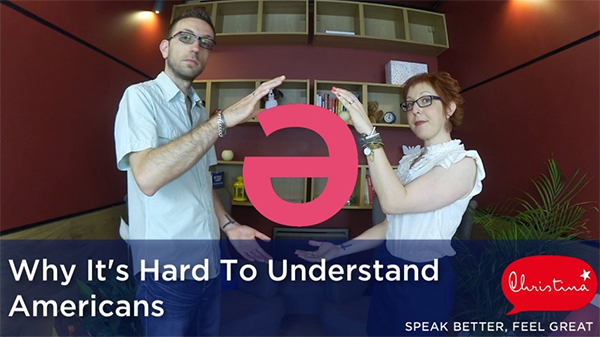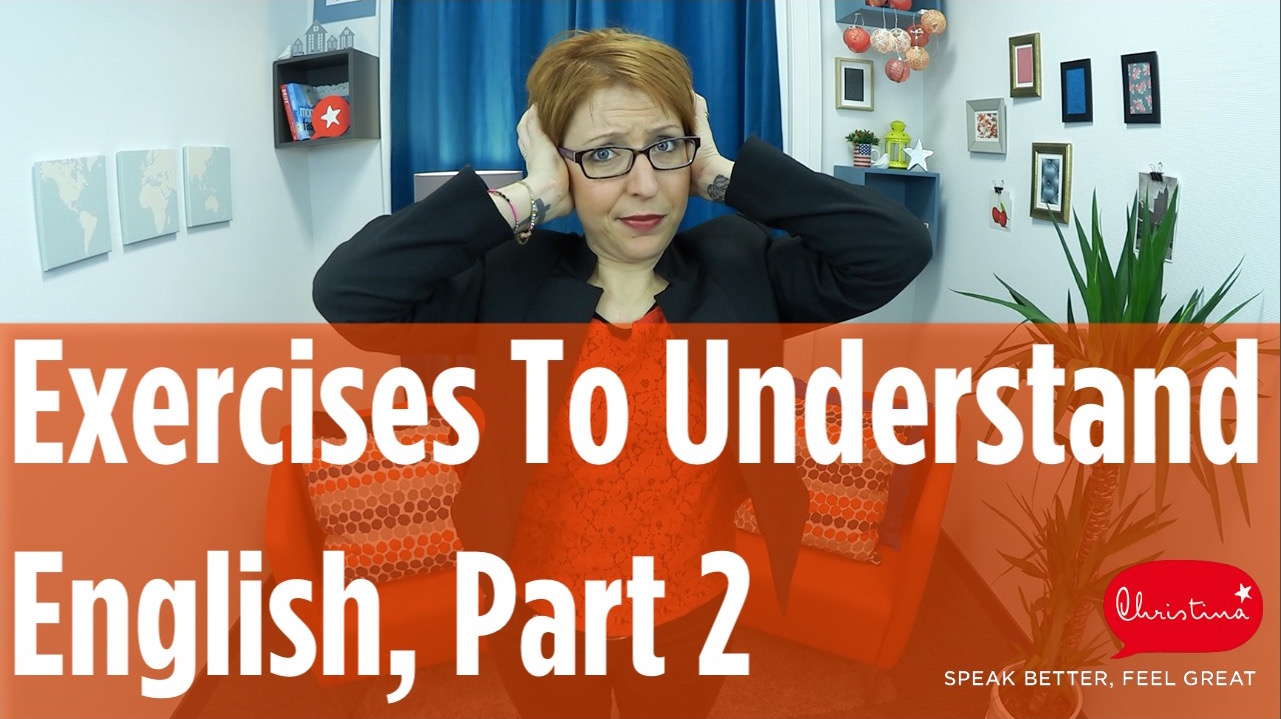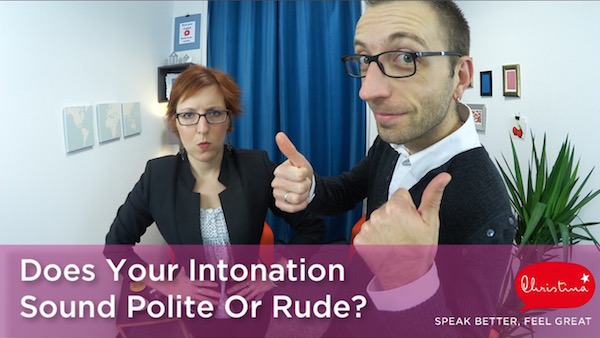
How to be polite in English
On a scale of 1-10, how rude are you in English? Do you know?
Do you think Americans could see you as rude, and you don’t even know it?
Imagine this…
Cathy, your American colleague is visiting your company headquarters in Paris.
She learned a few words in the local language before the visit, because she wanted to impress you.
You’re at the coffee machine together and she says (in a strong American accent): Je voudrais une café avec de la sucre, s’il vous plaît.
You understood, and give Cathy her coffee as you correct her: “OK sure, and it’s UNNN café, avec DUUUU sucre.”
Cathy looks hurt. She takes her coffee, but doesn’t say much after that.
What happened?
You meant to be helpful, but for Cathy, you were being very rude.
And your business relationship is off to a bad start….
Being culturally sensitive, with Leandra King
Today, you’ll see a special interview with Leandra King, creator of English with Leandra, and author of The Culture Sensitive Phrasebook and Workbook.
Leandra loves researching intercultural communication and has lots of insights that can help you start sounding more polite immediately.
(Watch at 3:51 to learn what to say when you don’t understand someone. Hint: It’s NOT “What?”)
(Activate the subtitles on YouTube if you need them 😉
Like I said in the video, if you work with native speakers of English (not just Americans), I highly recommend Leandra’s book The Culture Sensitive Phrasebook and Workbook.
(I only recommend resources that I’ve verified personally, and that I think will truly help you improve your English. This book is definitely one of those resources. But to be transparent, I do get a small commission if you purchase the book).
Now, what about you?
Have you ever experienced a situation where you were accidentally rude? Don’t worry, it’s normal when you’re learning English to make mistakes like this!
So ask your questions or share your stories in the comments!
Have a good week,
Christina

<script async data-uid=”20e6eeeac5″ src=”https://f.convertkit.com/20e6eeeac5/c4f64ebad3.js”></script>
More English lessons...
Click the image to see the lesson








Thank you for this video Christina & Leandra. It’s very interesting to see how different cultures are polite. It made me think of a visit I did to China once. Everywhere people were spitting on the ground. It was horrible. But our guide explained that it is just normal and not rude for Chinese people. People do this in France too, but it is not well seen to spit. But in China, it’s ok. So you just have to accept and adapt. Very interesting topic!
Hi Cécile, thanks for sharing your story! Yes, as you said, you just have to accept and adapt. One thing my French husband noticed in the US: When two people who know each other see each other and one of them is accompanied by a friend, spouse, etc. who is not known to the old friend, the two old friends will start talking. Only after a few minutes will one friend introduce the “new” person. But for a few minutes, it’s like the new person is not there. My husband found this very strange, but then I started observing people in conversations, and it’s indeed the “normal” way that people introduce a new person to their old friend!
Thank you so much for this episode! I must say that this is one of the most interesting and instructive episode that I have seen so far. I am looking for more fluency in my everyday conversations with native speakers in order to be more integrated in the community and make new friends and I am certain that it requires a cultural understanding of the country and the people with whom you live. I already try to be more positive, and I also use your small talk tips, that help me a lot in breaking the ice, but I think that these politeness tips are one of the key to a higher level of fluency.
Thank you again to you Christina, and Leandra as well!
Hi Adèle, wow, thanks so much for that nice compliment! I’ll be sure to pass it on to Leandra! You’re right, if you want to make friends and really be a part of the community, speaking English is only one part of the process. Understand the culture and what people expect of you is important too. So I’m so happy that this video is useful for you! All the best!
Hey Christina,
Many thanks for this interested video with another nativ speaker.
Could it be possible to have a part of the text from this video because it’s hard to understand everything. Have a good day ? ☺
Sandrine